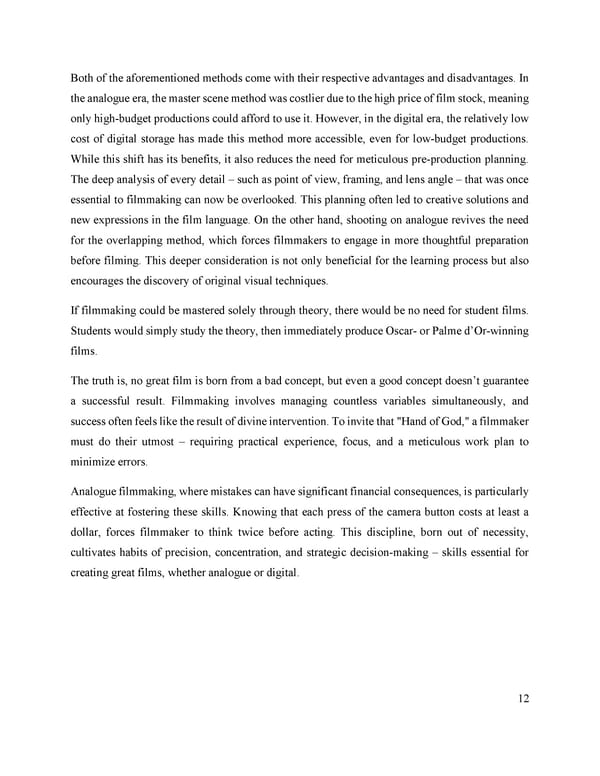Both of the aforementioned methods come with their respective advantages and disadvantages. In the analogue era, the master scene method was costlier due to the high price of film stock, meaning only high-budget productions could afford to use it. However, in the digital era, the relatively low cost of digital storage has made this method more accessible, even for low-budget productions. While this shift has its benefits, it also reduces the need for meticulous pre-production planning. The deep analysis of every detail – such as point of view, framing, and lens angle – that was once essential to filmmaking can now be overlooked. This planning often led to creative solutions and new expressions in the film language. On the other hand, shooting on analogue revives the need for the overlapping method, which forces filmmakers to engage in more thoughtful preparation before filming. This deeper consideration is not only beneficial for the learning process but also encourages the discovery of original visual techniques. If filmmaking could be mastered solely through theory, there would be no need for student films. Students would simply study the theory, then immediately produce Oscar- or Palme d’Or-winning films. The truth is, no great film is born from a bad concept, but even a good concept doesn’t guarantee a successful result. Filmmaking involves managing countless variables simultaneously, and success often feels like the result of divine intervention. To invite that "Hand of God," a filmmaker must do their utmost – requiring practical experience, focus, and a meticulous work plan to minimize errors. Analogue filmmaking, where mistakes can have significant financial consequences, is particularly effective at fostering these skills. Knowing that each press of the camera button costs at least a dollar, forces filmmaker to think twice before acting. This discipline, born out of necessity, cultivates habits of precision, concentration, and strategic decision-making – skills essential for creating great films, whether analogue or digital. 12
 Lost Analogue: Exploring Film, Music, and Interdisciplinary Methods in Education Page 12 Page 14
Lost Analogue: Exploring Film, Music, and Interdisciplinary Methods in Education Page 12 Page 14